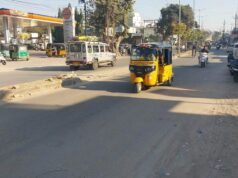Hyderabad: With the initial findings of the Comprehensive Socio-Economic Employment Caste Survey conducted in the state are set to be released in Jan, a significant concern has emerged among Hyderabad residents. Nearly 60 per cent of them reportedly refused to share their mobile numbers, citing fears of misuse and cyber fraud, according to the survey.
This reluctance comes despite the state govt’s assurance that the collected data will remain confidential. While experts acknowledge the growing awareness about cyber threats, they emphasise that understanding how cyber crimes occur and resisting fraudsters’ tactics are just as crucial.
According to sources, the survey is nearly 98 per cent complete, with the Centre for Economic and Social Studies (CESS) currently analysing the digitised data. Field observations reveal that rural areas show little to no hesitation in sharing personal data. In these regions, surveyors can effectively address doubts and reassure participants.
However, in urban areas—particularly within the Greater Hyderabad Municipal Corporation limits—residents remained skeptical, especially when asked to provide phone numbers linked to their bank accounts. Interestingly, many were more hesitant to share their mobile numbers than their Aadhaar numbers, although some reluctance existed regarding both.
Kona Sridevi, a private company employee from Himayatnagar, shared her experience. “I do not have any problem providing my data, but I was scared after seeing recent reports about digital arrests. Though I do not understand it fully, I provided another mobile number that’s not linked to my bank account.” Sridevi also mentioned that many of her friends shared similar concerns about providing their phone numbers.
Sources said some even shared their concern of providing mobile numbers with the BC Commission as well.
Cyber expert P Madhava Reddy, a BSNL employee, who has conducted over 200 awareness camps on cyber crimes across the state, weighed in on the issue. “It’s not enough to just be aware. People must resist the temptation of quick wealth and understand how to avoid threats that arise during digital arrests.”
He said most victims of cyber crime were educated urban residents, while those in rural areas tend to be more cautious and seek verification before sharing information. Madhava Reddy cautioned that not sharing mobile numbers with the govt does not necessarily protect individuals from falling victim to cyber crimes.
Despite the concerns surrounding data privacy, senior officials have reiterated that all information collected through the survey will be kept confidential and will not be shared with any third parties. “The main challenge is to ensure that citizens remain informed and vigilant in the face of increasingly sophisticated cyber threats,” an official said.
This reluctance comes despite the state govt’s assurance that the collected data will remain confidential. While experts acknowledge the growing awareness about cyber threats, they emphasise that understanding how cyber crimes occur and resisting fraudsters’ tactics are just as crucial.
According to sources, the survey is nearly 98 per cent complete, with the Centre for Economic and Social Studies (CESS) currently analysing the digitised data. Field observations reveal that rural areas show little to no hesitation in sharing personal data. In these regions, surveyors can effectively address doubts and reassure participants.
However, in urban areas—particularly within the Greater Hyderabad Municipal Corporation limits—residents remained skeptical, especially when asked to provide phone numbers linked to their bank accounts. Interestingly, many were more hesitant to share their mobile numbers than their Aadhaar numbers, although some reluctance existed regarding both.
Kona Sridevi, a private company employee from Himayatnagar, shared her experience. “I do not have any problem providing my data, but I was scared after seeing recent reports about digital arrests. Though I do not understand it fully, I provided another mobile number that’s not linked to my bank account.” Sridevi also mentioned that many of her friends shared similar concerns about providing their phone numbers.
Sources said some even shared their concern of providing mobile numbers with the BC Commission as well.
Cyber expert P Madhava Reddy, a BSNL employee, who has conducted over 200 awareness camps on cyber crimes across the state, weighed in on the issue. “It’s not enough to just be aware. People must resist the temptation of quick wealth and understand how to avoid threats that arise during digital arrests.”
He said most victims of cyber crime were educated urban residents, while those in rural areas tend to be more cautious and seek verification before sharing information. Madhava Reddy cautioned that not sharing mobile numbers with the govt does not necessarily protect individuals from falling victim to cyber crimes.
Despite the concerns surrounding data privacy, senior officials have reiterated that all information collected through the survey will be kept confidential and will not be shared with any third parties. “The main challenge is to ensure that citizens remain informed and vigilant in the face of increasingly sophisticated cyber threats,” an official said.






